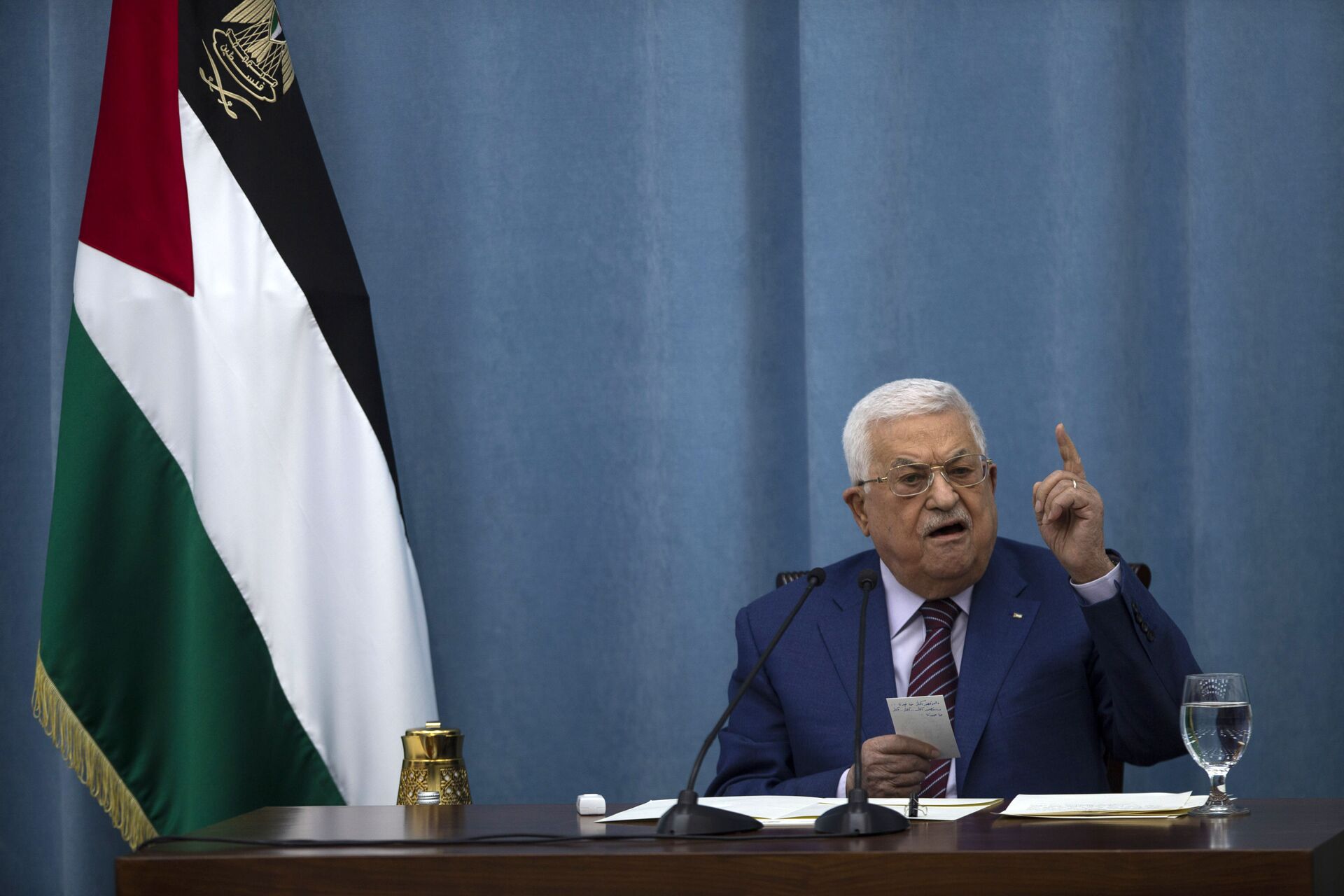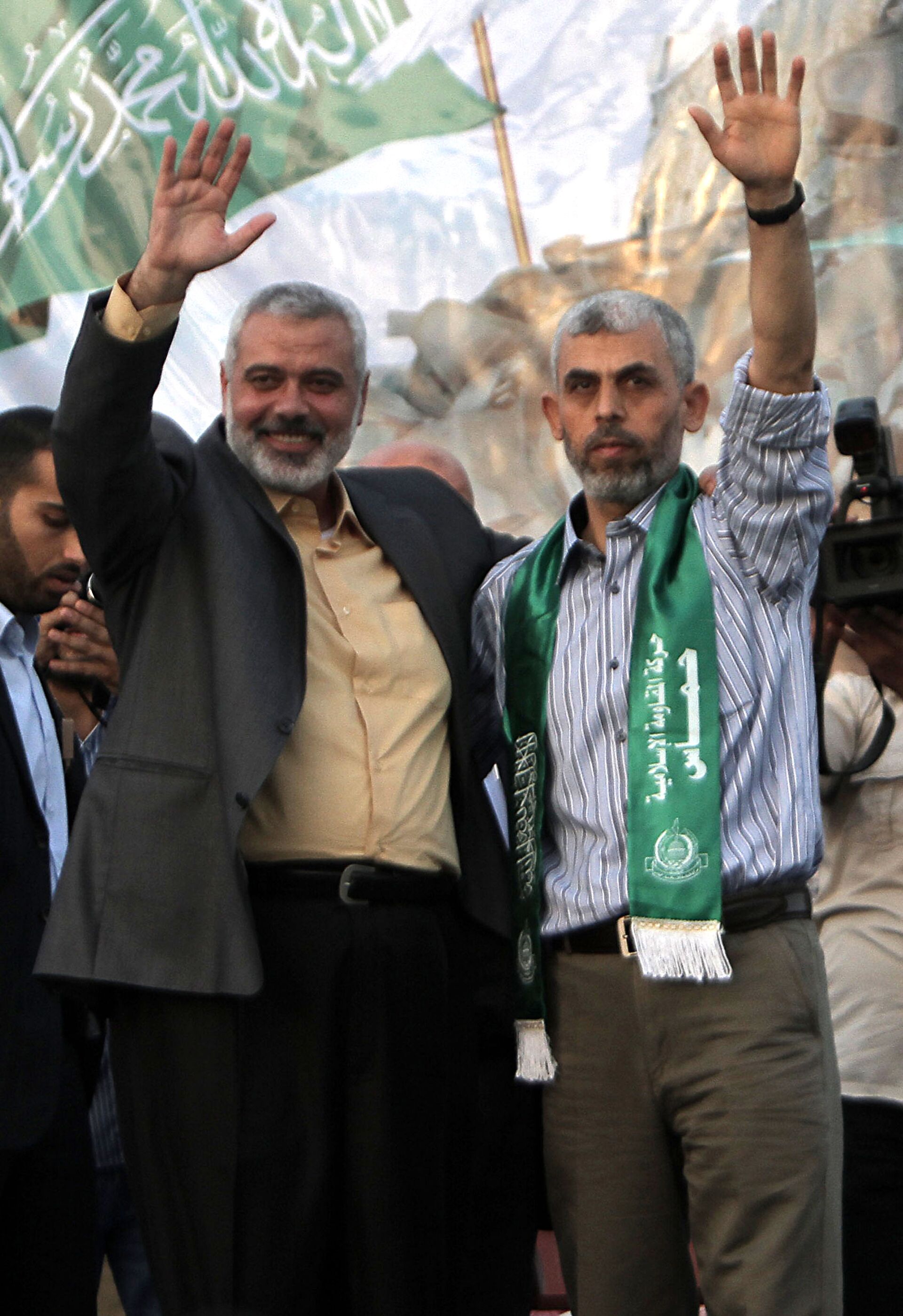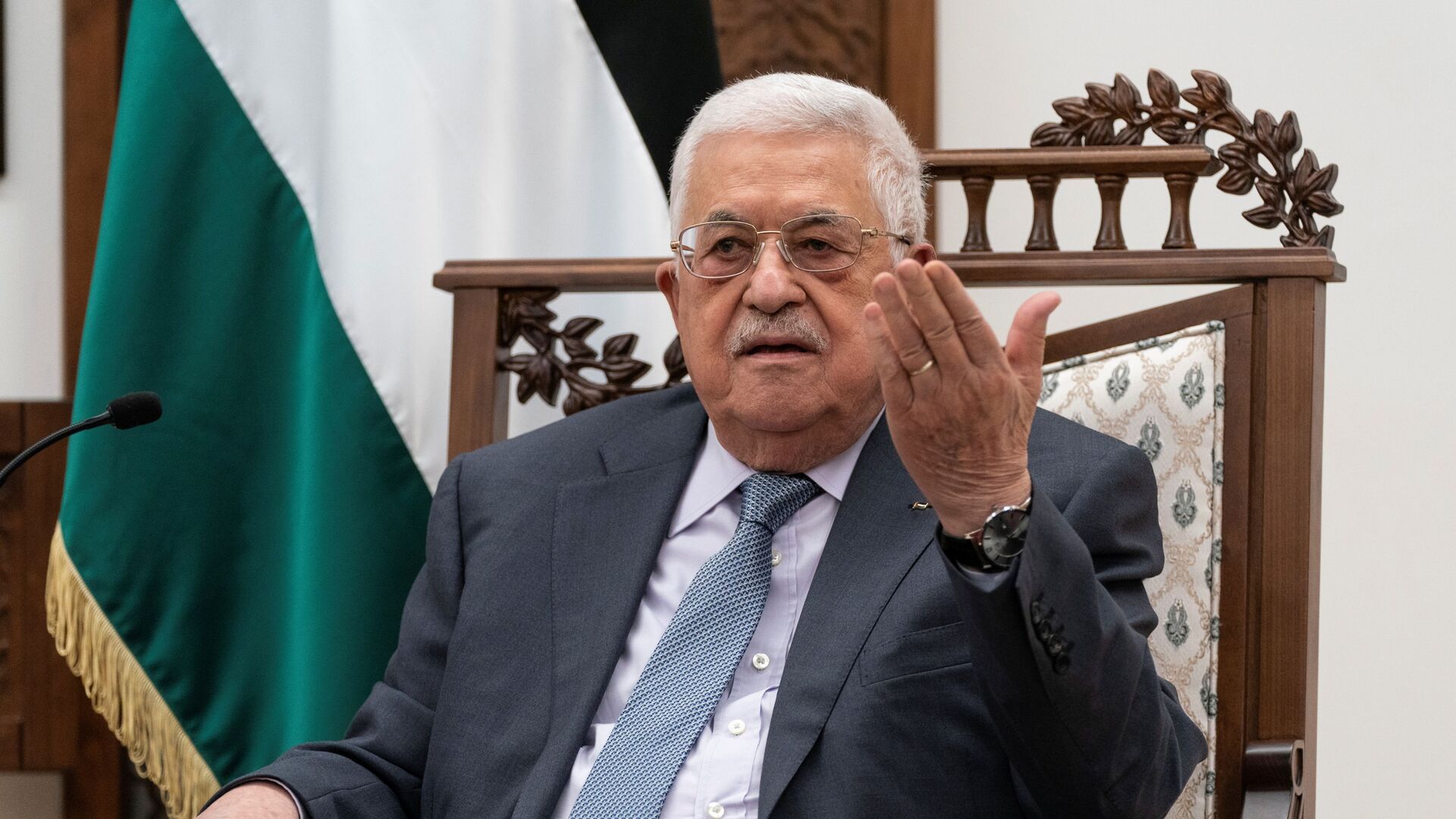Abbas said Wednesday he would work with the new Israeli administration, which is headed by Yamina leader Naftali Bennett, a staunch opponent of Palestinian statehood.
“There was - and still is - a crisis of government in Israel. The new government, the change government, won by one vote,” Abbas said in speech in Ramallah aired on Palestinian television, according to Yedioth Ahronoth. “We will deal with whoever the Israeli people choose. So we will deal with them.”
“However, it all depends on [Israel] stopping aggression against the Palestinians, resolving our underlying issues and starting negotiations to reach a permanent solution to the conflict,” he added.
Bennett, who became prime minister as part of a coalition deal with Yesh Atid leader Yair Lapid and five other parties, is a strong opponent of Palestinian statehood and favors annexation of the West Bank. Earlier on Wednesday, his government signed off on the first new construction projects in Israeli settlements in the West Bank since he was inaugurated on June 13. Israel seized the West Bank in 1967 and has settled roughly 475,000 Jews in the territory, who enjoy preferential rights compared to the roughly 2.8 million Palestinians who live there.
For the first time, an Arab party is also part of the Israeli government too: the conservative Arab Joint List, or Ra'am, is part of Lapid's coalition as well. By joining the government, Ra'am also extracted considerable concessions from his Zionist partners for Palestinians living in Israel, including recognition for Bedouin communities in the Negev and a three-year pause on the Kaminitz Law, making demolition of illegal Palestinian homes harder. However, Ra'am is a small party that lacks widespread Palestinian support.
The PNA has been cautious of the new government, which has billed itself as a “government of change,” primarily for ending Benjamin Netanyahu’s 12-year reign as prime minister.
“This time, a government without Netanyahu was formed in Israel,” the Palestinian Authority Foreign Ministry said when Bennett was inaugurated. “However, it is inaccurate to call it a ‘government of change,’ unless one means to say that Netanyahu is no longer there. As for [the new government’s] policies, we estimate that will see no difference, or perhaps even worse ones.”
Hamas spokesperson Fawzi Barhum also said at the time that “no matter the form of the Israeli government, it will not change the nature of our dealings with [Israel]. It is a settlement occupation entity that must be resisted and from which our rights must be wrested by any and all forms of resistance, foremost of which is armed struggle.”
The United Nations partition that established the state of Israel in the territory of British Palestine in 1948 was supposed to also create an independent Palestinian state as well as leave Jerusalem as an independent, international city. However, in the war that ensued with several Arab states, Israel seized territory far beyond the partition borders and in 1967 captured the entire West Bank and East Jerusalem as well as several other territories. The UN has decried these as illegal occupations, and in 1988, amid the First Intifada uprising, Palestinian leaders issued a declaration of independence. The peace negotiations that ended the uprising in 1994 were to lead toward a so-called two-state solution, but Israeli settlement of the West Bank only accelerated.
Abbas Tries to Head Off Hamas
According to the Yedioth, Abbas also said Wednesday that the PNA is the only legal body who can be trusted with relief money being sent to Gaza by the Qatari government in the wake of the 11-day Israeli bombardment last month. He called on Doha to transfer the cash to his government.
More than 250 Palestnians and 13 Israelis were killed in the war, and thousands of homes in Gaza were damaged or destroyed. According to government estimates, $350 million in damage resulted from Israeli bombs.

Abbas’ comments mirror those made by US Secretary of State Antony Blinken last month after he traveled to the West Bank to pledge $75 million in development and economic assistance, including $5.5 million in “immediate disaster assistance” for Gaza and about $32 million for the United Nations Relief and Works Agency for Palestine Refugees in the Near East (UNRWA).
However, Blinken said it was essential that none of the money go toward helping Hamas, which is the governing party in Gaza and which the US and Israel consider to be a terrorist organization. Hamas carried the territory in the last Palestinian elections, which were held in 2006. Abbas was brought to power in the same elections, but the differences between his moderate Fatah party and the more radical Hamas soon manifested into a split in which the Gaza Strip became de facto autonomous.
At the time of Blinken’s speech, Hamas’ Gaza chief, Yahya Sinwar, called it out as a trick to keep Fatah and Hamas divided.
“We will never fall for this trick and lash out at each other,” Sinwar said.
Abbas had attempted to hold new Palestinian elections earlier this year, but called them off in April after Israeli authorities refused to allow Palestinian East Jerusalemites to participate in them. About 150,000 Palestinians live in the part of East Jerusalem and the West Bank outside the separation wall, and their neighborhoods have become the front lines of the struggle between Palestinians and Israeli settlers seeking to evict them and resettle their communities with Jews.
Support for Hamas Rises
In the leadup to the elections, which were to have been held in May and July, polls showed that while more voters would select the Fatah list than the Hamas list, neither would be able to form a majority in the Legislative Council. Further, in the presidential election, Abbas was likely to lose to Hamas leader Ismail Haniyeh, who would win 50% of the vote to the incumbent’s 43%.
In the wake of the 11-day war which lasted from May 10 to May 21, in which Hamas fired thousands of rockets into Israel and the Israeli Defense Forces bombarded Gaza with aircraft and artillery, Palestinians’ estimation of the militant group only increased.

A poll by the Ramallah-based Palestinian Center for Policy and Survey Research conducted between June 9 and June 12 found that 40% of Palestinians surveyed would vote for Hamas and 30% would vote for Fatah. Further, in a presidential election, 59% would vote for Haniyeh and 27% would vote for Abbas.
However, the polls also suggested there is widespread dissatisfaction specifically with Abbas. If Haniyeh ran against Fatah leader and legendary Palestnian militant Marwan Barghouti instead of Abbas, Barghouti would handily defeat the Hamas candidate by 51% to 26%. The polls also showed that 66% of those surveyed believed Abbas had delayed the elections over fear of the results, with just 25% believing the official story of a delay caused by East Jerusalem’s exclusion. Sixty-five percent said they opposed his decision to call off the vote.
Earlier this week, Gazans delivered a list of demands they said were necessary to maintain the ceasefire, including allowing the Qatari aid to be transferred into Gaza, but also the expansion of Gaza’s restricted fishing zone and the reopening of border crossings, which allow some amounts of trade with the outside world.


